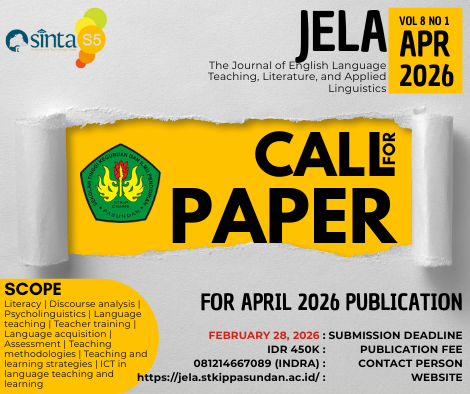EXPLORING EFL STUDENTS' DIFFICULTIES IN LISTENING COMPREHENSION: A STUDY ON COMMON CHALLENGES AND STRATEGIES
DOI:
https://doi.org/10.37742/jela.v7i2.163Keywords:
EFL students, listening difficulties, listening strategiesAbstract
Listening comprehension is a fundamental skill in learning a foreign language, as it facilitates meaningful interaction and language acquisition. Despite its importance, many learners of English as a foreign language (EFL) struggle with understanding spoken English due to various linguistic, technical, and motivational challenges. While previous studies have highlighted some of these difficulties, few have explored how students themselves identify and address them within formal listening instruction contexts. To fill this gap, this study aims to investigate the types of listening difficulties encountered by university-level English education students and the strategies they employ to overcome them. Using a qualitative case study approach, data were collected from reflection questionnaires and semi-structured interviews, with 15 final-year students who had completed listening courses as the participants. Thematic analysis revealed three major categories of challenges: comprehension difficulties such as unfamiliar vocabulary and fast speech, technical barriers such as unstable internet connections and unclear audio, and motivational issues including boredom and anxiety. In response, students adopted strategies such as repeated listening, the use of subtitles or transcripts, and the selection of content based on personal interest. These findings suggest the need for curriculum designers and educators to integrate more learner-centered and strategy-focused approaches in teaching listening. Diversify listening materials, integrate strategy training, and create low-anxiety environments to support learners may significantly enhance learners' listening comprehension.










